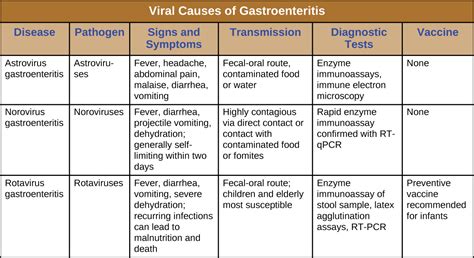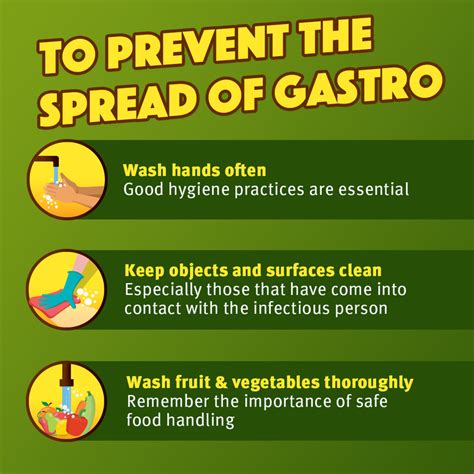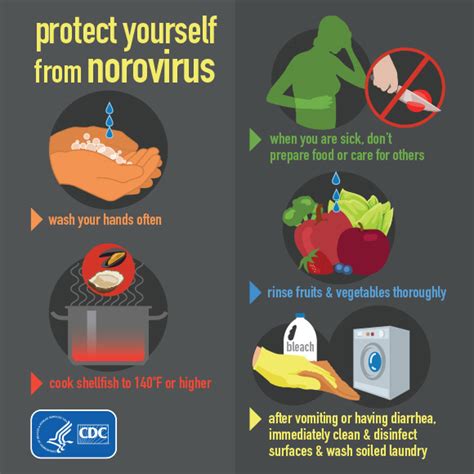Intro
Stay ahead of the latest GI bug outbreak! Learn the common symptoms, such as stomach cramps, diarrhea, and vomiting, and discover effective prevention tips to keep you and your family safe. Understand the causes, transmission, and treatment options for this highly contagious gastrointestinal illness and take control of your health.
As the world grapples with the ongoing pandemic, another health concern has been making headlines: the gi bug. Also known as the stomach flu or gastroenteritis, this highly contagious illness has been spreading rapidly, leaving many people wondering how to protect themselves and their loved ones. In this article, we'll delve into the symptoms of the gi bug, discuss prevention tips, and provide guidance on how to manage the illness if you do get infected.
The gi bug is a common illness that affects millions of people worldwide every year. It's usually caused by a viral or bacterial infection that inflames the stomach and intestines, leading to a range of uncomfortable symptoms. While it's not typically life-threatening, the gi bug can be debilitating and disrupt daily life. So, what are the symptoms to look out for?
Symptoms of the Gi Bug
The symptoms of the gi bug can vary from person to person, but common signs of the illness include:
- Diarrhea or vomiting
- Stomach cramps or abdominal pain
- Fever
- Headache
- Fatigue
- Loss of appetite
- Bloating or gas
In some cases, people may also experience:
- Blood in stool or vomit
- Severe abdominal pain
- Signs of dehydration, such as excessive thirst or dark urine

How the Gi Bug Spreads
The gi bug is highly contagious and can spread through:
- Close contact with an infected person
- Contaminated food or water
- Poor hygiene practices
- Touching contaminated surfaces or objects
Prevention Tips
While there's no guaranteed way to avoid the gi bug entirely, there are steps you can take to reduce your risk of getting infected:
- Wash your hands frequently: Use soap and water for at least 20 seconds, especially after using the bathroom, before eating, and after blowing your nose, coughing or sneezing.
- Keep surfaces clean: Regularly disinfect high-touch surfaces, such as doorknobs, light switches, and countertops.
- Avoid close contact: Try to maintain a distance of at least 3 feet from anyone who's infected.
- Practice good hygiene: Avoid sharing food, drinks, or utensils with someone who's infected.
- Stay hydrated: Drink plenty of fluids, such as water, clear broths, or electrolyte-rich beverages like sports drinks.
- Get enough rest: Aim for 8-10 hours of sleep per night to help your body recover.
Managing the Gi Bug
If you do get infected with the gi bug, there are steps you can take to manage your symptoms and reduce the risk of complications:
- Stay hydrated: Drink plenty of fluids to replace lost electrolytes and prevent dehydration.
- Rest: Get plenty of rest to help your body recover.
- Bland diet: Stick to a bland diet of foods that are easy to digest, such as bananas, rice, applesauce, and toast (BRAT diet).
- Over-the-counter medications: Consider taking anti-diarrheal medications or antacids to help manage symptoms.
- Seek medical attention: If your symptoms worsen or you experience severe abdominal pain, vomiting blood, or signs of dehydration.

When to Seek Medical Attention
While the gi bug is usually a self-limiting illness, there are times when you should seek medical attention:
- Severe symptoms: If you experience severe abdominal pain, vomiting blood, or signs of dehydration.
- Prolonged symptoms: If your symptoms last longer than 3 days or worsen over time.
- Underlying medical conditions: If you have an underlying medical condition, such as diabetes, kidney disease, or a weakened immune system.
- Pregnancy or breastfeeding: If you're pregnant or breastfeeding and experience symptoms of the gi bug.
Frequently Asked Questions
What is the gi bug?
+The gi bug, also known as gastroenteritis, is a common illness that affects the stomach and intestines.
How long does the gi bug last?
+The gi bug usually lasts 1-3 days, but symptoms can persist for up to a week.
Can I take antibiotics for the gi bug?
+Antibiotics are usually not effective against viral causes of the gi bug. However, if your symptoms are caused by a bacterial infection, your doctor may prescribe antibiotics.
Staying Safe and Healthy
The gi bug may be a common illness, but it's still important to take steps to protect yourself and your loved ones. By following these prevention tips and knowing when to seek medical attention, you can reduce your risk of getting infected and manage symptoms if you do get sick. Remember to stay hydrated, get plenty of rest, and practice good hygiene to keep yourself and those around you safe and healthy.

We hope this article has provided you with valuable information on the gi bug and how to stay safe and healthy. If you have any further questions or concerns, please don't hesitate to comment below or share this article with others.
